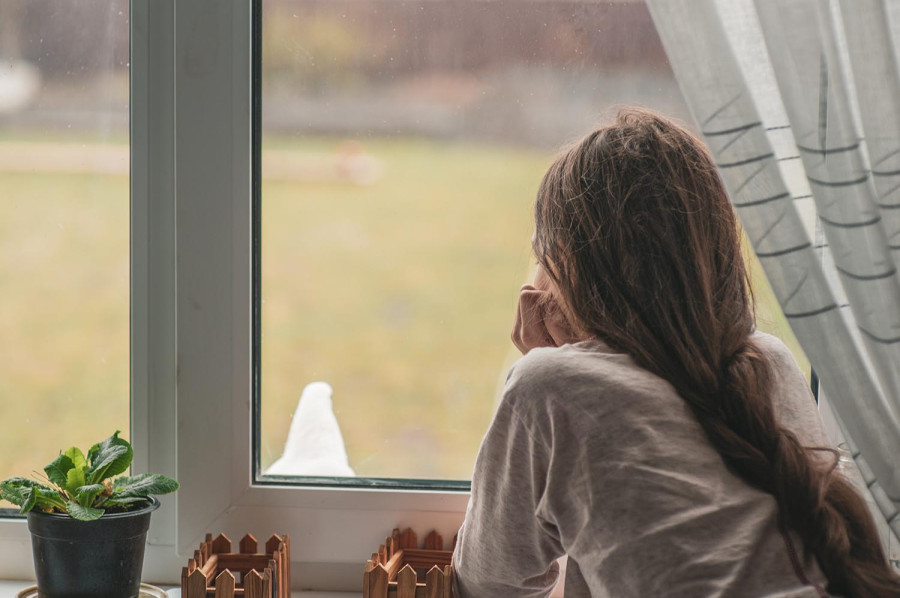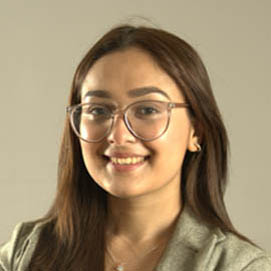Fiction Park
Thin walls, thick accents
It is a mess wherever I am. People shout at ungodly hours. They rarely laugh. They walk around with sulky faces.
Mimamsha Dhungel
It had been ten days since I had been in this place. From the glass windows, I could see that it was somewhere on the outskirts of the city.
There were trees and a few commercial buildings around, but I could not pinpoint exactly where I was. I was trying to recollect my vague memories, but no, I had no reminiscence of how I came here. As I went back, tracing my blurred thoughts, it all ended once I got inside a car. I think it was Frau (Ms) Smith who drove me.
I have tried escaping this place, but they would not let me. The friendly-looking woman addresses me politely, saying, “A few more days, ja, and we will drop you ourselves.” I do not speak their tongue. They try their best to talk to me in English. I am somewhere I am not supposed to be; the bland food, the solemn-looking people, and the clinical smell tell me at least that. Yet I try to decipher where on earth I am.
They give you bread for lunch and dinner, a slice of cheese, and chocolate milk. Other people eat along with you. There is a guy who calls himself Dr Nagel; there is Philip, there is Frau Badura, and there are Jasper and Michael. But no one looks your age. Mostly, people read books and talk amongst themselves. You just do not get what they usually talk about.
One of the polite-looking ladies approaches me and says, “Do you not smoke? Try visiting the Raucherraum (smoking room) sometimes; maybe it will be fun.”
I never go to the smoking room like she suggests. Mostly, it is occupied by middle-aged men who talk about money and politics. I am 20, and I don’t smoke. I stay away from that room.
Frau Badura spends most of her time knitting. She speaks very little English. I ask her, “Why are you here?”
She simply points at another guy and says, “My son.” It is a mess wherever I am. People shout at ungodly hours. They rarely laugh. They walk around with sulky faces. A television is in the living room, but no English channel is playing. I want to make friends, talk, and find out where I am. But it simply does not work.
The only person who interacts with me is Frau Tahmasebi. She comes with a paper when she meets me, and she asks weird personal questions. “How was your childhood?” “Where did you find this jacket?” “Are you worried about tomorrow?” She sometimes comes with a man she calls a doctor. He asks me normal questions. “Did you eat today?” “Did you bathe?” I am amazed at how they spend 45 minutes asking me very, very simple questions. I cannot connect the dots.
People started noticing that I did not like bread. So, they ate mine. They would give me their chocolate milks in return. My stomach was never full. But I would always fill it up with the chocolate milk they gave.
It was the 14th day, and I was in the living room when she walked in. Everybody around me spoke in thick accents. She was wearing a red scarf and a red Mammut jacket. Her hair was as white as snow. I could not help but admire her royalty-looking demeanour.
I kept staring at her, wondering who this new addition was. She came close to me and sat down. “Jadwiga,” she looked at me and smiled. I thought it was another word I did not understand. However, it turned out to be her name.
She had a strong Polish accent. “I am an old lady, but I earn myself. My brothers were jealous, so they stole all my money and sent me here.”
I kept listening.
“I am old and all alone. I have no children. That is why they brought me here. You and I have to find a way out.”
Jadwiga started to become close to me. She would talk about Warsaw and Ząbki. She would talk about how red was her favourite colour. She would tell me about her brother’s children.
“Young ladies should look beautiful. You do not take care of yourself,” she told me one day.
“Think of me as your grandmother. Come, I will bathe you today,” she would offer. She would threaten the polite-looking ladies that she would call some higher-ups if they did not let her free. Jadwiga was always writing notes. One day she said to me, “Where did you get your jacket? I want one.”
“Home,” I said.
“Call your parents.”
I called back home, and Jadwiga started talking to my parents. “I want the same jacket as hers. Could you please send it to me?” she said.
“Once I am out, I will send you good clothes and watches and jewelry,” she told my mother, who helplessly looked at me through the screen.
Jadwiga went on and on and on, talking about strange things in fragmented ways. And that day, I realized something was wrong with her, with me, with us, those who were here.
On the 20th day, the polite-looking lady approached me and said, “You can go for a walk. But be back in 30 minutes exactly.” I walked for 15 minutes and returned. The people looked at me strangely when I was walking in Taunusstraße, as if they were scared of me.
The next time, they let me out for one hour. I walked to a shop and bought myself an ice cream. I went to a firewood pizza place and asked for a large pineapple pizza. I could have eaten it all by myself, but I thought of the people bartering chocolate milk for bread. I took the pizza with me to share.
People never looked happier. The next time I was out, Jadwiga wanted some notebooks. “Take this 20 euros and buy me paper. I have to write to them; they need to know what they do to me here.”
I was walking with Philip one day and saw a döner place. He bought me a döner. I took it back to eat it in the room I shared with Astrid.
On my way, Jadwiga pulled my hand. “Ich habe Hunger (I am hungry),” she pleaded.
I gave that döner to her. Philip was furious. “I brought it for you. Why give it to her?”
“She needs it more than me,” I had said.
The food got better around Christmas. There were varieties. On St. Nicholas Day, someone left me a chocolate in front of my door.
Astrid bought me a chocolate too. She was a good woman. “Is that for me?” I had asked.
“Natürlich (Of course),” she had smiled.
“Why are you here, Astrid?” I had asked her one day.
“Alkohol,” she had said and rushed to the bathroom.
The place was full of unique people, and I slowly started picking up their idiosyncrasies. My drawer was full of chocolate milk. I was less hungry as days passed by.
“Will you take the Tanztherapie (dance therapy) ?” I asked Philip.
“No. I am not a dancer. I am taking the Kunsttherapie (art therapy),” he said.
Once a week, we would assemble when the chief would address us. He would be in a pristine white coat and talk in perfect English when he referred to me. Jadwiga would shout at him too sometimes.
One fine day, someone called for me. It was not Frau Tahmasebi or the polite-looking lady. I was called to the reception. “You have got a package,” the lady at the desk said.
“Me? I never get packages.”
“Christmas has come for you,” she smiled.
When I opened the parcel, there were chocolates and a card from Frau Georgi. I ran to Jadwiga to share it with her. She looked splintered. Her dress was disheveled. “I am bringing this place down,” she was shouting. I ran to Philip’s room.
“He left for home today,” Eric said.
“When am I going?” I asked him.
“Frau Tahmasebi will give you the good news,” he said.
Two days later, Eric was driving me out of there. “Would you like some music?” he said. I was not beside him. I was sitting behind.
“Apache 207. Roller,” I said and closed my eyes. Jadwiga was looking at me through the glass window. As the car drove by, the gate to the building closed.




 22.12°C Kathmandu
22.12°C Kathmandu










